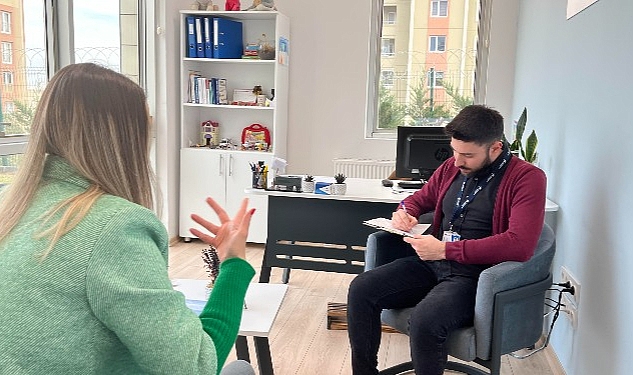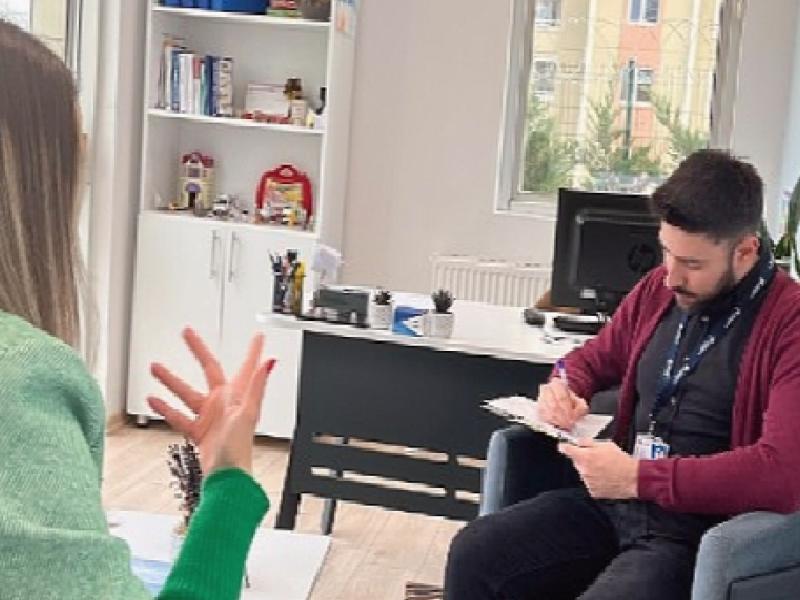
exp. Clinical Psychologist Aykut Koçak: We will be available at any time, but we will not force people who do not want help!
“Do not offer unrealistic consolations to people who have experienced the earthquake”
ADVICE FROM THE EXPERTS: HOW TO DEAL WITH THE PSYCHOLOGICAL EFFECTS OF EARTHQUAKE?
PSYCHOLOGICAL SUPPORT TO CITIZENS AFFECTED BY EARTHQUAKE
The earthquakes that occurred in Kahramanmaraş and were felt in 11 provinces seriously affected the people living in the region both physically and psychologically. The earthquakes, which directly affected approximately 13 million 500 thousand people in the region, also deeply shook 85 million people who witnessed the suffering. Expressing that the reactions of children and adults, which were recorded as the disaster of the century, are normal reactions to the abnormal event, Küçükçekmece Municipality Family Counseling Center Specialist. Clinical Psychologist Aykut Koçak underlined the need to be careful to support people who have experienced the earthquake and said, “You should not force people who do not want help and you can only try to be available to them when they need support.”
Specialist Psk Aykut Koçak: “Do not offer unrealistic consolations to people who have experienced the earthquake”
Solidarity is one of the most important tools that can reduce negative emotions in the society during an earthquake. However, this process needs to be managed professionally while helping the people affected by the earthquake. Stating that consolation sentences that will impose assurance and guarantee on the people who experienced the earthquake should not be established, Uzm. Psychologist Aykut Koçak said, “It is necessary to give correct information to the questions asked by people who have experienced the earthquake. Reassurances and unrealistic consolations such as ‘Everything will be fine, at least you are alive’ should not be given to the person. Sentences such as ‘I wish it was like this’ should not be used for the past. These sentences create negative feelings such as guilt, inadequacy, helplessness and disappointment in the person. Care should be taken to exhibit an understanding, not critical, attitude. It should not be coercive in terms of aids,” he said.
Take your time and be patient!
Stating that the earthquake caused various fears even for adults and children who did not live directly, Uzm. Clinical Psychologist Aykut Koçak advises adults; “After the earthquake, emotional, mental, physical and behavioral reactions such as anxiety, forgetfulness, sleep problems, dizziness, crying spells, difficulty in anger control, and difficulty in maintaining daily life may occur in adults. Give yourself time and be patient with these reactions. Be in touch with the people who experienced the earthquake, try to stay in cooperation with them. Try to maintain your daily routines and spend more time with your loved ones.
Do not ignore your children’s questions about the earthquake, give honest answers
Expressing that children react differently to traumatic life events such as earthquakes in every age group, Koçak said, “Children look for answers to questions about earthquakes using their imaginations. For this reason, any question asked by the child should not be overlooked, and it should be helped to make a correct sense of the event by giving honest answers appropriate for his age without giving too much detail. If the parent is in a panic, the children should not be expected to be calm. Be careful to keep the child away from earthquake and debris images. What they most want to hear and feel is to know that they are safe. Express often that you are safe and together. Keep in close contact. Hugging and kissing increase the feeling of trust. Spend more time and make room for the game,” he said.
Do not hesitate to get support from an expert if your complaints do not decrease over time.
exp. Psychologist Koçak said that in this process, reactions such as the desire to sleep with the parents, fear of loneliness, not wanting to go to school, bed wetting, thumb sucking, constantly bringing up the subject of earthquakes and talking may occur. “Let’s not forget that we are experiencing an unusual situation and we have losses. Therefore, all these symptoms are the result of efforts to cope with the event. Remember that these are very natural but temporary responses. These reactions, which may continue with varying intensity in the first weeks, are expected to decrease over time. Do not hesitate to seek support from a mental health professional if you observe that the complaints do not decrease and that they begin to affect the child’s daily life, and that ideas of harming himself or someone else are formed.
Psychological support from Küçükçekmece Municipality to citizens affected by the earthquake
Küçükçekmece Municipality Directorate of Women and Family Services continues to provide free consultancy services from expert psychologists to citizens who experienced the earthquake that came to the district. Citizens affected by the earthquake can call 444 4 360 and make an appointment with the Family Counseling Centers of Küçükçekmece Municipality.
Source: (BYZHA) – Beyaz News Agency

